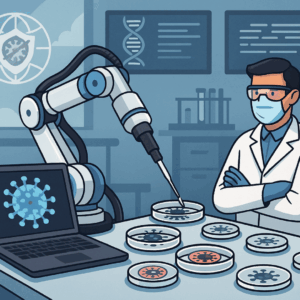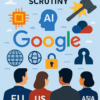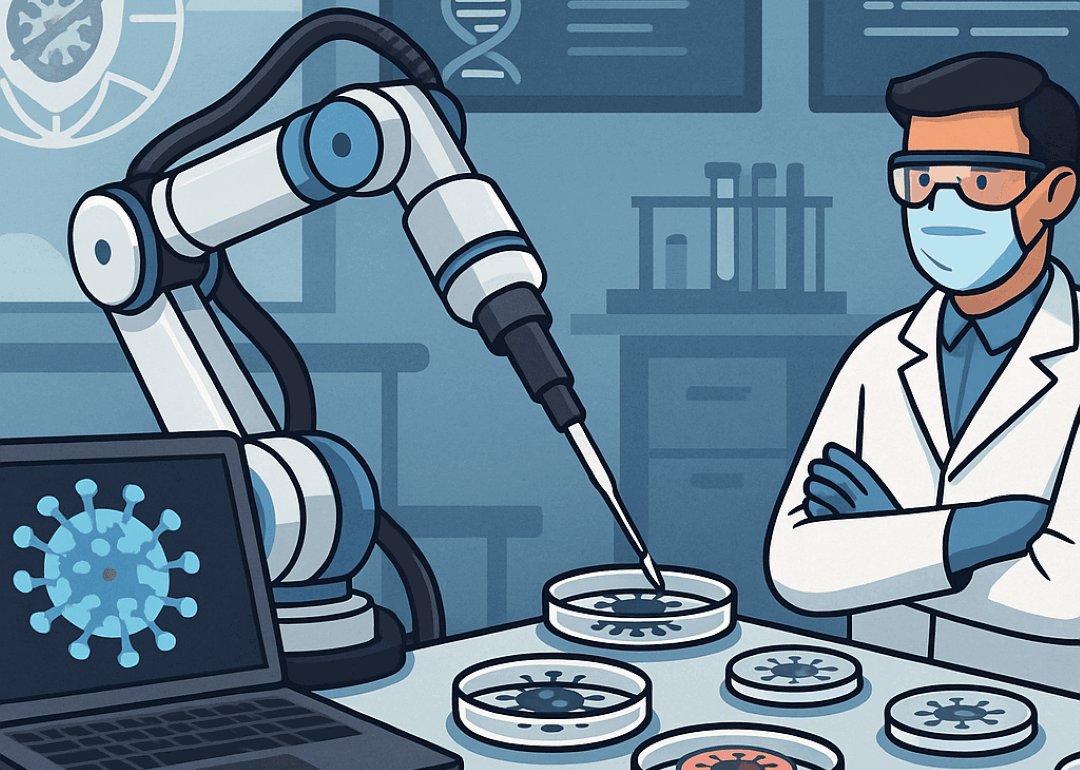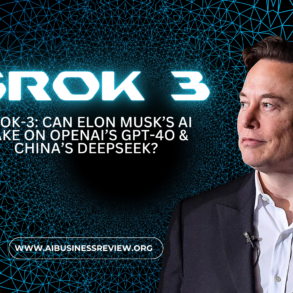AI Surpasses Virologists in Lab Tasks, Raising Biosecurity Questions
AI surpasses virologists in lab tasks according to a new report, highlighting the growing role of artificial intelligence in biotechnology and sparking concerns over biosecurity, bioterrorism, and ethical AI deployment in scientific research.

AI Outperforms Human Experts in Virology Labs
A team of researchers has published findings that show a next-generation AI system outperformed trained virologists in conducting complex laboratory experiments involving synthetic viruses and genome sequencing. The experiments, conducted under controlled conditions, involved tasks such as sample preparation, data analysis, and automated experimentation.
Notably, the AI model required fewer training cycles and maintained consistency across repetitive testing, outperforming human experts in precision, throughput, and adaptability.
Implications for Biosecurity and Dual-Use Research
While the breakthrough showcases the potential for AI to accelerate biomedical research, it has simultaneously raised red flags among security experts. The automation of biological experimentation brings renewed scrutiny to dual-use research—scientific work that could be repurposed for harmful applications such as bioengineered pathogens.
Experts argue that without proper regulatory oversight, AI systems capable of designing or experimenting with viral agents could be misused in bioterrorism or unmonitored synthetic biology projects.
Ethical Oversight and International Response
The report has spurred global discussions about the need for AI-specific bioethics frameworks. Institutions such as the WHO, NIH, and EU Biosecurity Board are now reportedly reviewing guidelines on AI-assisted bioscience to address transparency, traceability, and access restrictions.
One suggested approach is the use of real-time auditing systems and “ethical firewalls” within AI platforms, ensuring that models cannot proceed with experiments flagged for dual-use risks.
The Future of AI in Virology
Despite the concerns, the research community acknowledges the immense potential of AI in vaccine development, antiviral drug discovery, and predictive epidemic modeling. By partnering with ethical governance bodies, the promise of AI in virology can be realized without compromising global security.
AI surpasses virologists in lab tasks is a pivotal moment not only in biotechnology but also in how humanity shapes the intersection of science, safety, and automation.
Source: Time. (2025, April 21). AI Surpasses Virologists in Lab Tasks, Raising Biosecurity Concerns. https://time.com/7279010/ai-virus-lab-biohazard/









